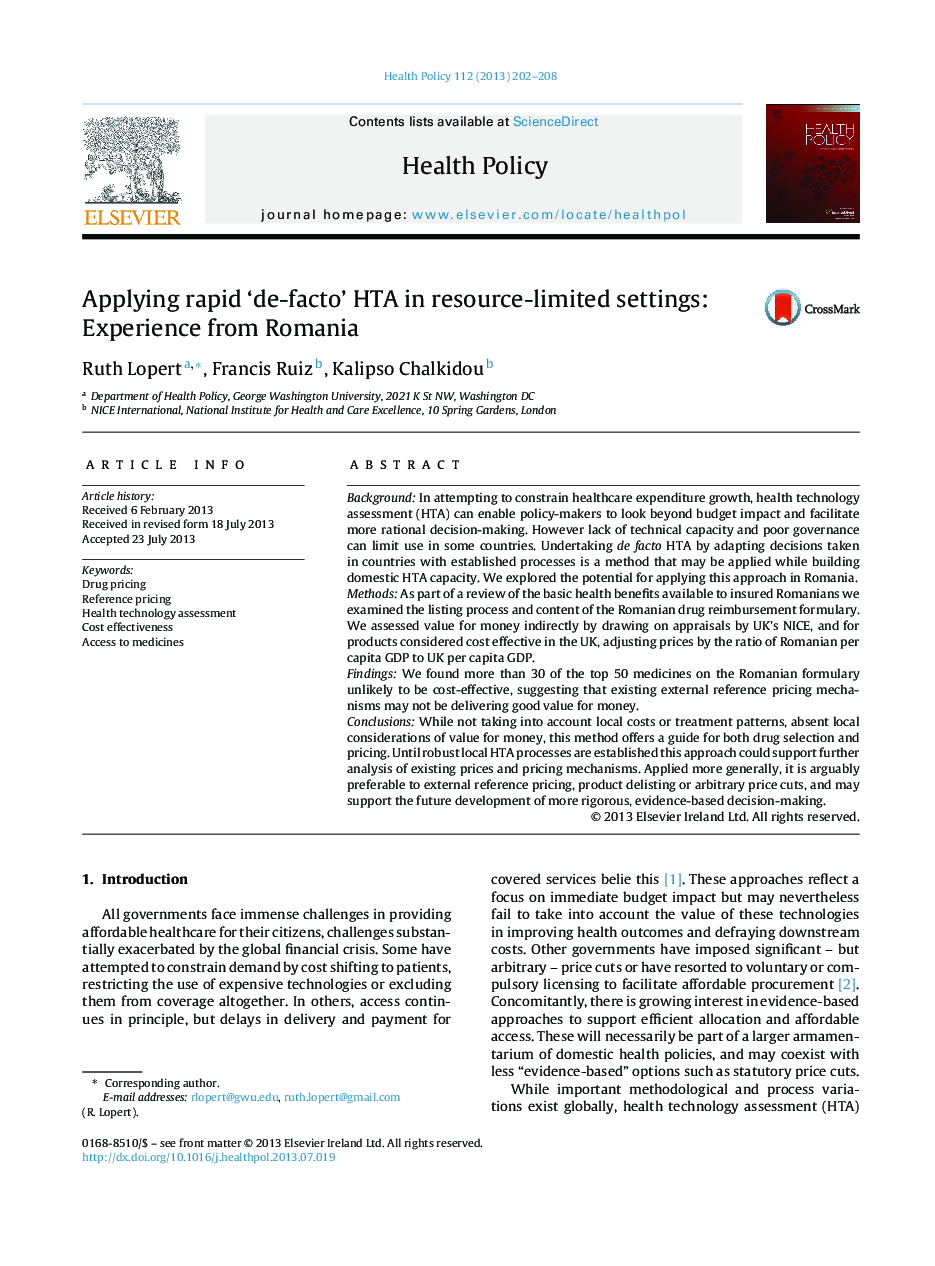| Article ID | Journal | Published Year | Pages | File Type |
|---|---|---|---|---|
| 6239946 | Health Policy | 2013 | 7 Pages |
BackgroundIn attempting to constrain healthcare expenditure growth, health technology assessment (HTA) can enable policy-makers to look beyond budget impact and facilitate more rational decision-making. However lack of technical capacity and poor governance can limit use in some countries. Undertaking de facto HTA by adapting decisions taken in countries with established processes is a method that may be applied while building domestic HTA capacity. We explored the potential for applying this approach in Romania.MethodsAs part of a review of the basic health benefits available to insured Romanians we examined the listing process and content of the Romanian drug reimbursement formulary. We assessed value for money indirectly by drawing on appraisals by UK's NICE, and for products considered cost effective in the UK, adjusting prices by the ratio of Romanian per capita GDP to UK per capita GDP.FindingsWe found more than 30 of the top 50 medicines on the Romanian formulary unlikely to be cost-effective, suggesting that existing external reference pricing mechanisms may not be delivering good value for money.ConclusionsWhile not taking into account local costs or treatment patterns, absent local considerations of value for money, this method offers a guide for both drug selection and pricing. Until robust local HTA processes are established this approach could support further analysis of existing prices and pricing mechanisms. Applied more generally, it is arguably preferable to external reference pricing, product delisting or arbitrary price cuts, and may support the future development of more rigorous, evidence-based decision-making.
